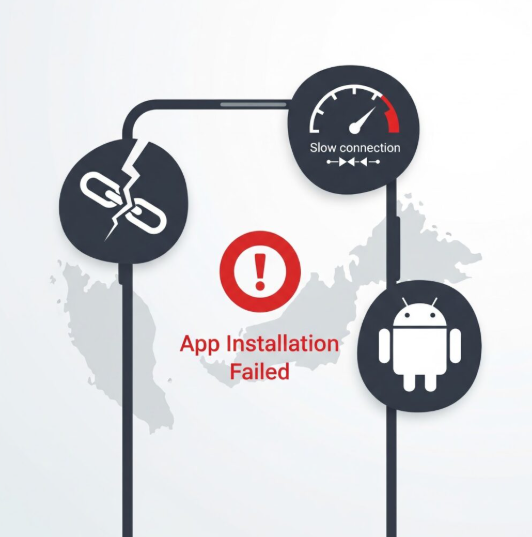Enhancing User Experience with Address Validation and Autocomplete Solutions
In today’s digital landscape, businesses are striving to enhance user experience and accuracy in their operations. One of the critical areas where this is evident is in address management. With the rise of online transactions, integrating an address validation API and address autocomplete solutions can significantly improve the user journey while ensuring data accuracy. In this blog, we will delve into how these technologies can be utilized effectively in various sectors.
Understanding Address Validation API
An address validation API is a tool that verifies the accuracy of an address. By integrating this technology into your applications, businesses can ensure that the addresses entered by users are legitimate and deliverable. This process helps to prevent issues related to shipping and service delivery.
Key Features of Address Validation API
- Real-Time Verification: The address validation API performs real-time checks against a database of valid addresses, allowing businesses to confirm the accuracy of user input on the spot.
- Standardization: It automatically formats addresses to meet local postal standards, which helps in maintaining consistency in data.
- Error Reduction: By validating addresses, companies can minimize the risks of returned shipments and service delays, enhancing overall efficiency.
- Global Reach: Many APIs are capable of verifying addresses across different countries, making them essential for businesses with international customers.
The Importance of Address Autocomplete
Address autocomplete is a smart feature that suggests potential addresses as users start typing in their address fields. By implementing this feature, businesses can significantly enhance user experience and streamline the data entry process.
Benefits of Address Autocomplete
- Speed: Address autocomplete minimizes the time users spend filling out forms, which can lead to higher conversion rates.
- Accuracy: It reduces typographical errors by providing valid address suggestions, ensuring data integrity.
- User Satisfaction: Autocomplete features can lead to a more pleasant user experience, as they make it easier for customers to complete forms quickly.
- Mobile Compatibility: As mobile usage grows, having an efficient address autocomplete function becomes crucial for mobile users, as typing on smaller screens can be cumbersome.
Incorporating features like address autocomplete not only improves user experience but also enhances the quality of the data collected. When users see suggested addresses, they are less likely to input incorrect or incomplete information, which can save businesses time and resources down the line.
Use Cases for Address Validation and Autocomplete
The implications of using address validation APIs and autocomplete features extend across various industries. Here are a few key sectors where these solutions can make a noticeable difference:
E-commerce
In the e-commerce sector, accurate address validation is crucial for successful order fulfillment. By ensuring that customers input correct shipping addresses, businesses can reduce the number of returned packages and improve customer satisfaction. Address autocomplete can make the checkout process smoother and faster, ultimately leading to increased sales.
Real Estate
For real estate agents, having precise property addresses is vital. An address validation API can help agents confirm the locations of properties to ensure that listings are accurate. This minimizes the chances of misleading information, which can build trust and enhance reputation among clients.
Logistics and Delivery Services
In the logistics industry, timely deliveries depend on the accuracy of addresses. Using an address validation API can streamline the entire operations process, from order processing to final delivery. Autocomplete features can assist delivery personnel in navigating to addresses accurately and promptly.
Subscription Services
Subscription box services rely heavily on accurate address information for successful monthly deliveries. Utilizing both address validation and autocomplete can enhance user experience and ensure that packages arrive at the right locations without delays.
Implementing Address Verification and Autocomplete Solutions
Integrating address validation and autocomplete features into your website or application may seem daunting, but the process can be straightforward with the right tools and support. Here are a few steps to get started:
- Choose Your Provider: Research address validation and autocomplete service providers. Look for reputable companies that offer APIs with robust features tailored to your business’s needs.
- Integration: Follow the documentation provided by your chosen API provider to integrate the solution into your system. Most APIs offer straightforward guides and coding examples to simplify the process.
- Testing: After integration, conduct extensive testing to ensure that the validation and autocomplete features perform as expected. This phase is crucial to identify any potential issues before going live.
- Monitor and Optimize: Once deployed, continuously monitor the system to assess its performance. Gather user feedback to identify areas for improvement and optimize accordingly.
Conclusion
The adoption of address validation and autocomplete technologies is becoming an essential practice for businesses aiming to enhance user experience and maintain accurate data. By ensuring that customers enter valid addresses and reducing errors in data entry, companies can not only improve their service delivery but also foster better relationships with their customers. As we move towards a more digital world, investing in these solutions could prove vital for future success.
Whether you are in e-commerce, logistics, real estate, or any other sector, consider integrating an address validation API and address autocomplete technology into your operations to reap the rewards of improved user experience and operational efficiency.






